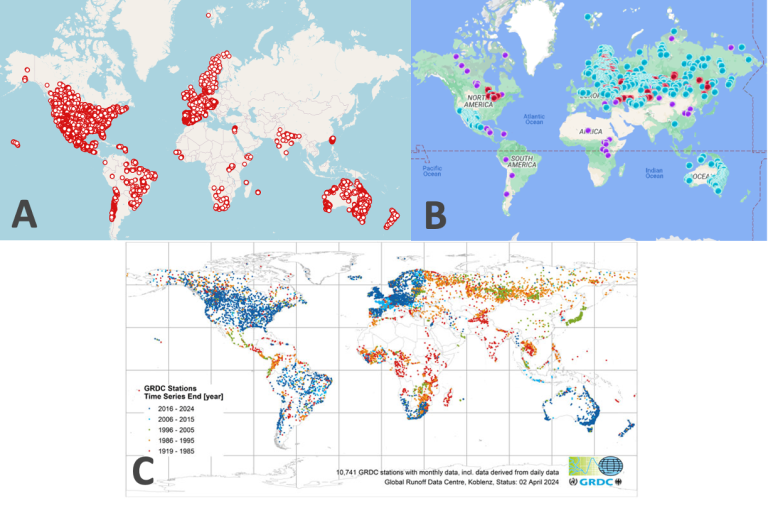INFCOM-3 advances exploration on Global Hydrological Data Centres
As climate change alters hydrological cycle, the need for comprehensive data intensifies. However, accessibility to reliable hydrological data remains limited. Hydrological data centres offer a solution by facilitating data access, caching, archiving, discoverability, and dissemination. Strengthening these centres enhances our ability to monitor and respond to climate-induced hydrological changes effectively.

On Tuesday 16 April, the 3rd session of the Commission for Observation, Infrastructure, and Information Systems (INFCOM-3), made a landmark decision aimed at bolstering global hydrological data centres. Decision 8.1(6) outlines strategic measures to enhance the role of data centres in monitoring the global water cycle.
To improve the integration and effectiveness of global hydrological data management, a detailed workplan will be developed for INFCOM-4 in 2026. This plan, aligned with the report "Assessment and future roles of WMO Global Hydrological Data Centres,” will include insights and recommendations for their evolution. These centres include the Global Runoff Data Centre (GRDC), the International Groundwater Resources Assessment Centre (IGRAC), the International Data Centre on Hydrology of Lakes and Reservoirs (HYDROLARE), and the Global Precipitation Climatology Centre (GPCC). This plan will also explore potential collaborations with other networks and centres, particularly the International Soil Moisture Network (ISMN), affiliated with GTN-H and with UNEP's Global Environmental Monitoring System (GEMS) Water Programme.
The decision, recalling Resolution 25 (Cg-18) and the WMO Plan for Action for Hydrology (2022-2030), emphasizes the importance of integrating reliable hydrological observations and data into the WMO Integrated Global Observing System (WIGOS) and the WMO Information System (WIS). This exploration aims to enhance interoperability within the UN system concerning freshwater observations across the entire global water cycle, contributing to more comprehensive and cohesive data management efforts.
Furthermore, the decision emphasizes the importance of WMO Members regularly submitting historical and near-real-time data to these centres. The development of technical standards and the use of WIS2.0 and WMO Hydrological Observing System (WHOS) as solutions are also prioritized to streamline data access, exchange, and discoverability.
This decision underlines the importance of these centres in serving as data storage systems for organizations lacking their own systems, fostering collaboration, contributing to HydroSOS and State of Global Water Resources reports, and supporting WMO's training programmes on hydrological data management.
For daily highlights, visit the INFCOM-3 dedicated webpage.
Related Document
- Doc 8.1(6): Draft Decision 8.1(6)/1 - Decision on the report on the WMO Global Hydrological Data Centres
*Documents are available on the INFCOM-3 minisite.

